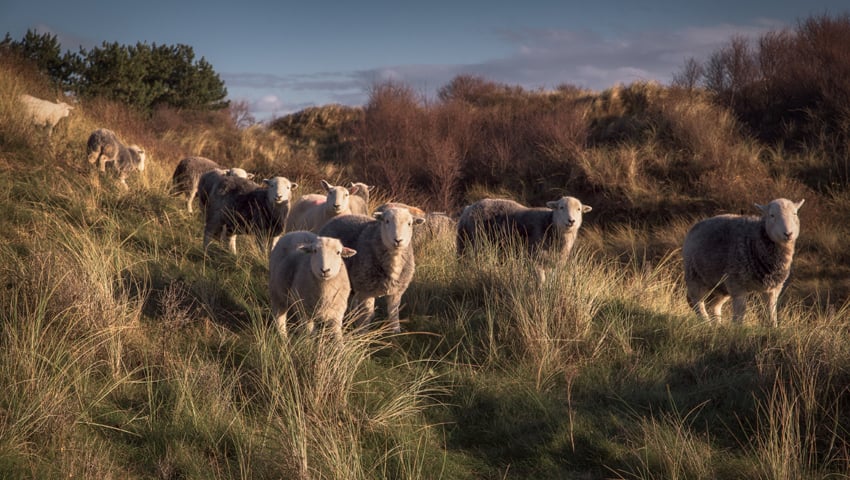Veterinarian and first generation farmer, Claire Whittle, has published her Nuffield Farming report ‘Can Regenerative Agriculture improve the health and welfare of livestock?’, sponsored by McDonalds UK & Ireland.
During her Scholarship, Whittle travelled to the United Kingdom, the USA and Australia.
In her report, Whittle said, “In the face of growing climate concerns and environmental degradation, the UK livestock industry is facing increasing scrutiny for both its ethical and environmental impacts.
“As food systems have become more industrialised globally there have been increasing concerns over the health and welfare of livestock as animals are often pushed to their physical and psychological limits in the name of efficiency and progress.”
Whittle notes that regenerative agriculture is often seen as an alternative solution to intensive livestock production systems.
As part of her Scholarship, Whittle wanted to understand if regenerative agriculture can improve the health and welfare of livestock.
She said, “Although management of livestock is the most vital determinant of health and welfare within any farming system, animals that are walking a metabolic knife-edge due to high levels of production in intensive systems are more likely to require interventions.”
Understanding the root cause of disease can help identify bottlenecks on farm.
Whittle said, “Focussing on positive health and welfare outcomes alongside levels of disease is imperative here, as are sound and ethical breeding decisions. Observation and an open mindset are key attributes of a good stockperson.”
Landscape design is as fundamental to livestock welfare.
Whittle said, “Housing design and long-term, sustainable farm planning for a changing climate is crucial to ensure that health and welfare remains a priority in regenerative systems where animals are used as a tool to improve soil health.
“Regenerative agriculture can not only improve livestock health and welfare – but it also has the potential to improve the health of entire ecosystems on a global scale. It is therefore, on the entire industry from policy to the supply chain to support a move to a more sustainable, regenerative future.”
Key findings:
- Management of livestock remains the most vital determinant of positive health and welfare outcomes. Good husbandry, observation and attention to detail, are key attributes of a good stockperson.
- Freedom to express natural behaviour and giving livestock a “life worth living” must become the baseline of good welfare practice.
- Understanding the root cause of disease can help identify bottlenecks to health and welfare in any livestock system.
- Landscape design is as fundamental to livestock welfare as housing design and long-term, sustainable farm planning for a changing climate is crucial. Breeding has role to play here too.
- Regenerative agriculture can not only improve livestock health and welfare – it has the potential to improve the health of entire ecosystems on a global scale. Government policy and the supply chain must support farm businesses to move towards a regenerative future.
